Moving coil input transformers
Moving coil cartridges are low voltage devices. Typical output levels are below
1 mV, and often as low as 0.1 mV. In order to generate 12.5W on an 8 ohm loudspeaker, a 0.1V signal must be amplifier 100000 times (or 100 dB). In particular for tube amplifier devices, such a high amplification is very hard to achieve without significant noise additions and signal degradation.
The purpose of using Moving Coil Step-Up Transformers (MC SUTs) is to step up/increase the low output signal voltage from moving coil cartridges before the signal enters the phono stage. As MC cartridges are very low impedance devices, transformers can successfully be used to raise the signal level 20 – 30 dB without any noticeable degradation. This reduces the required remaining amplification significantly.
When you choose between different MC SUTs, we normally suggest that you choose a step-up ratio based on the cartridge output impedance as follows:
Low impedance (1 – 10 ohms) step-up ratio 32 – 24
Medium impedance (10 – 40 ohms) step-up ratio 24 – 8
High impedance (> 40 ohms) step-up ratio < 8
Low turns ratio MC SUTs (turns ratio around 1:5) are sometimes used also with low impedance cartridges when combined with solid state phono stages.
Lundahl Transformers make MC SUTs with two different types of core; mu metal (nickel) lamination core and uncut amorphous cobalt strip core. The laminated mu metal core is the most classic and commonly used core material. It provides high permeability also at small signal levels, low distortion and a transparent sound. Our uncut amorphous strip cores are sometimes said to be more musical, but due to a lower initial permeability they are slightly less linear.
Our more prestigious range of SUTs are wound with Oxygen Free Copper (OFC), and some are also available with silver wire.
For more information on MC SUTs, and how to apply proper loading to cartridges, we suggest you visit this page at our US distributor Erhard Audio LLC:
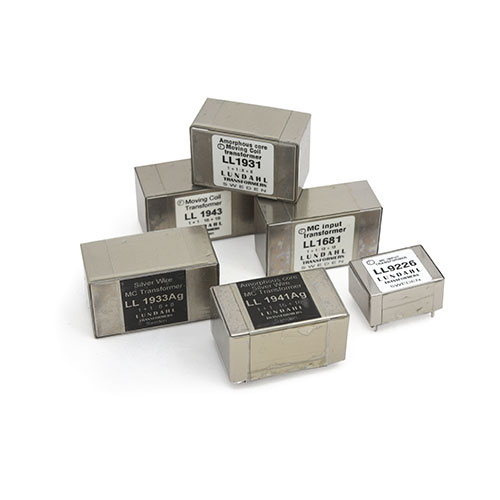
Moving coil input
| Photo | Type | Stepup Ratio | Core | Wire | Size LxWxH | Comment |
|---|---|---|---|---|---|---|
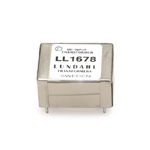 | LL1678 | 8, 16, 32 | Amorphous | Standard | 30x23x15 | Small size |
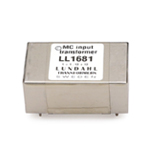 | LL1681 | 13, 26 | Mu metal | Standard | 48x29x20 | With Faraday shields |
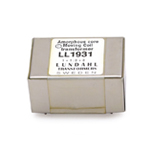 | LL1931 | 8, 16 | Amorphous | OFC | 43x29x22 | Premium |
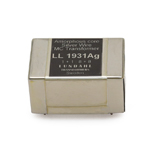 | LL1931Ag | 8, 16 | Amorphous | Silver | 43x29x22 | Super premium |
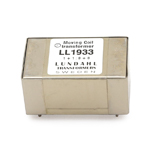 | LL1933 | 8, 16 | Mu metal | OFC | 47x28x24 | Premium |
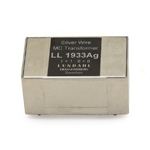 | LL1933Ag | 8, 16 | Mu metal | Silver | 47x28x24 | Super premium |
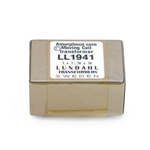 | LL1941 | 16, 32 | Amorphous | OFC | 43x29x22 | Premium |
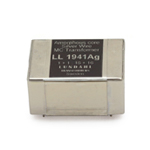 | LL1941Ag | 16, 32 | Amorphous | Silver | 43x29x22 | Super premium |
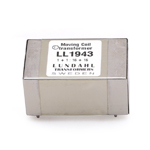 | LL1943 | 16, 32 | Mu metal | OFC | 47x28x24 | Premium |
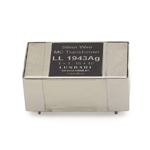 | LL1943Ag | 16, 32 | Mu metal | Silver | 47x28x24 | Super premium |
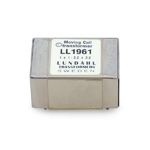 | LL1961 | 3.2, 6.4 | Amorphous | OFC | 43x29x22 | Premium. With Faraday shields. For solid state systems. |
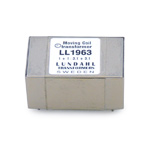 | LL1963 | 3.1, 6.2 | Mu metal | OFC | 47x28x24 | Premium. With Faraday shields. For solid state systems. |
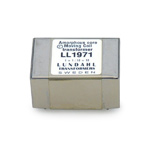 | LL1971 | 12, 24 | Amorphous | OFC | 43x29x22 | Premium |
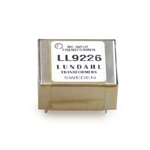 | LL9226 | 5, 10, 20 | Amorphous | Standard | 30x23x15 | Small size |
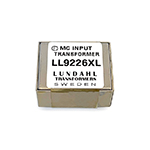 | LL9226XL | 5, 10, 20 | Amorphous | Standard | 33x27x16 | Bigger size, bigger core. LL9226 pinout. |

